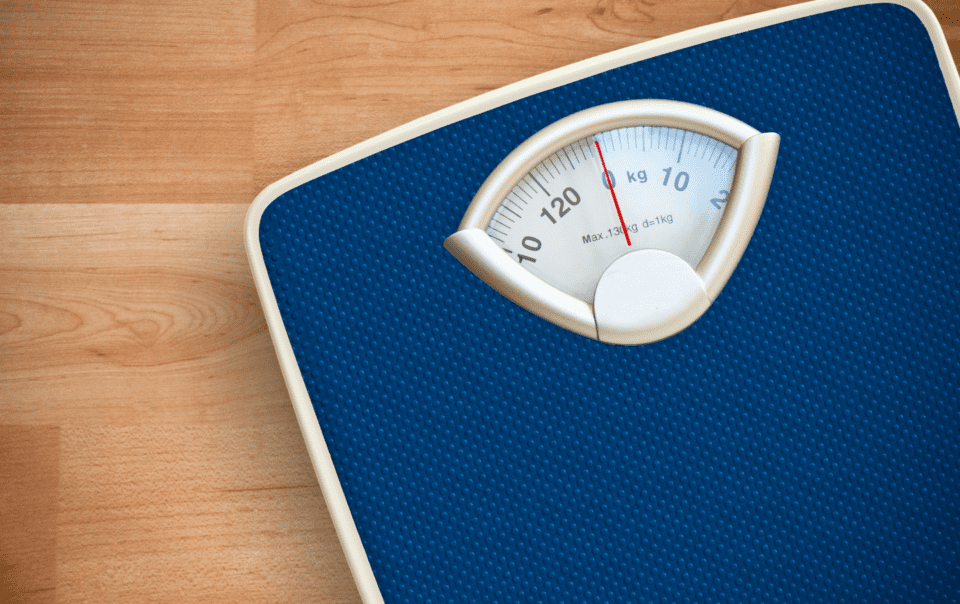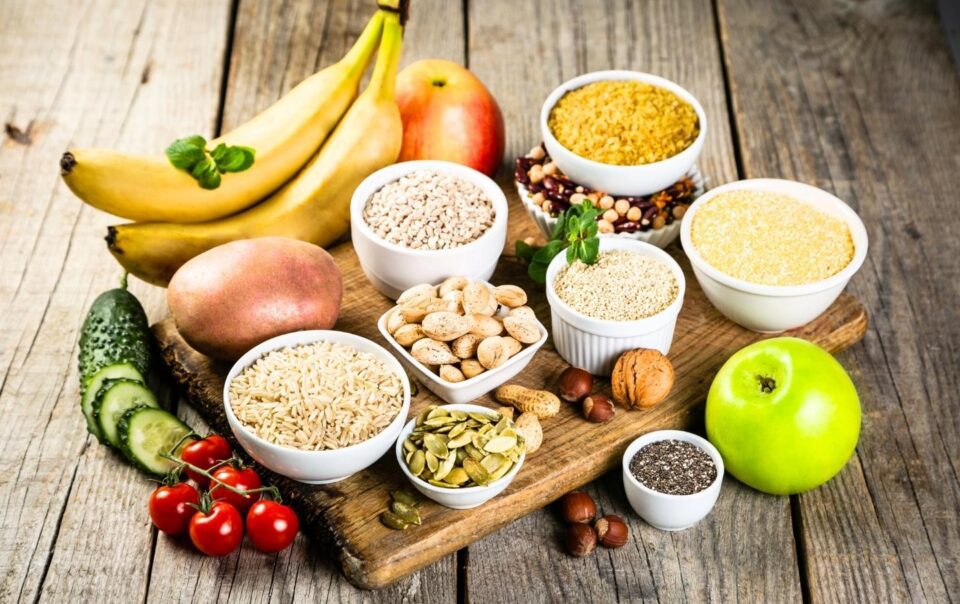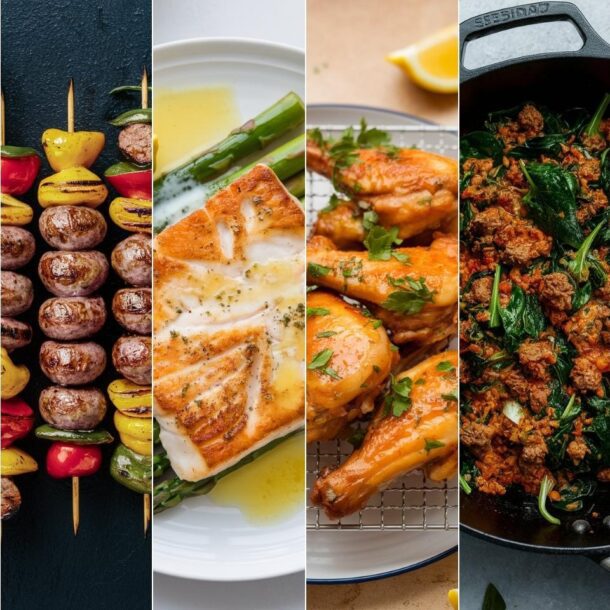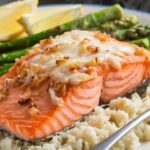
Please note: This website contains affiliate links. As an Amazon Associate, we earn from qualifying purchases at no additional cost to you.
If you’ve ever Googled “how to lose weight,” you’ve probably seen the same advice on repeat: eat less, move more, drink water. While those tips are true, they’re only part of the story. Weight loss isn’t as simple—or as predictable—as most people make it sound, and there’s a lot that no one tells you about what really works (and what doesn’t).
This article is your backstage pass to the stuff most weight loss guides skip over. From surprising science to mindset shifts that can change everything, here are the weight loss tips and truths you probably haven’t heard before.
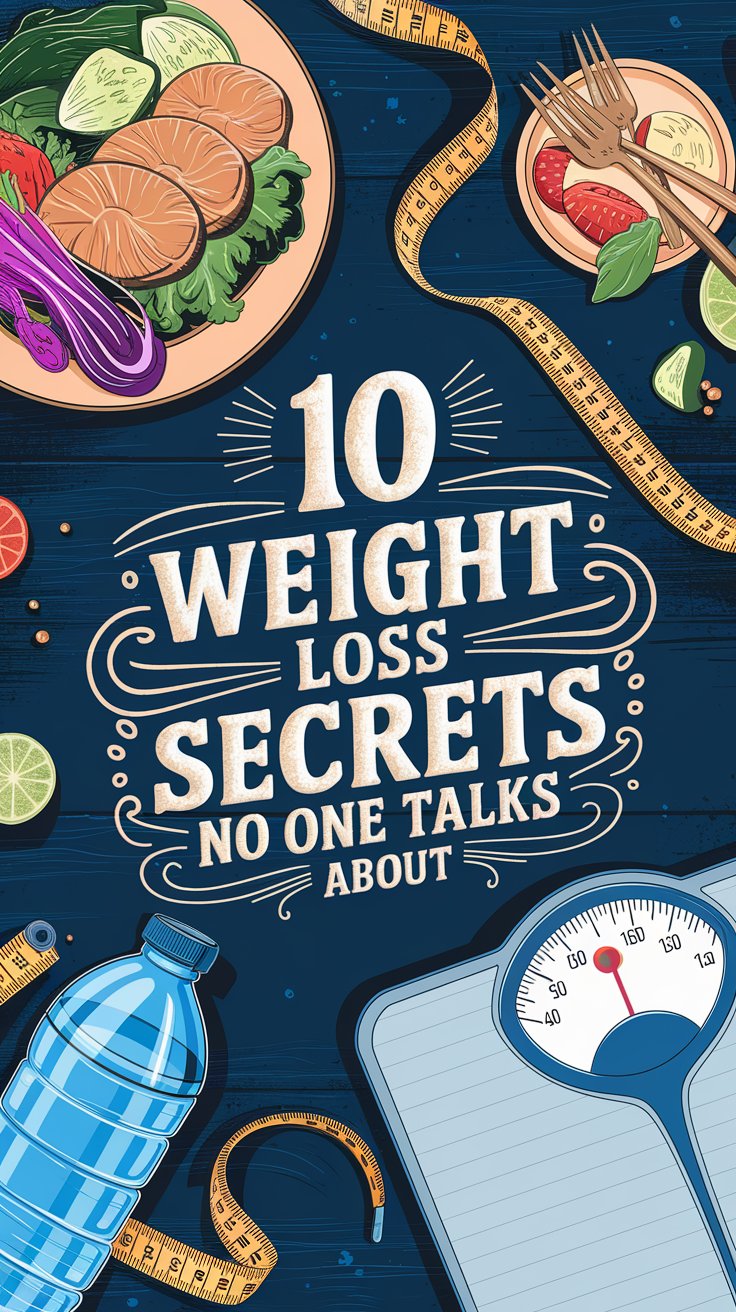
10 Things You Probably Didn’t Know About Losing Weight
1 | Your Body Fights Back—And That’s Normal
Losing weight isn’t a straight line. Your body loves balance, so when you eat less, it adjusts to conserve energy and get you back to your set point. This is why plateaus happen—your metabolism can slow down slightly to match your calorie intake.
What to Do: Instead of panicking, mix things up. Try increasing activity, eating slightly more on some days (also known as calorie cycling), or focusing on strength training to boost muscle mass and metabolism.
Friendly Truth: A plateau doesn’t mean you’re failing—it means your body’s adjusting. Keep going, be patient, and you’ll break through. Learn more about how your body’s set point works.
2 | You’re Probably Eating More Than You Think
We all underestimate how much we eat—yes, even the “clean” foods. Those handfuls of nuts, extra spoonfuls of peanut butter, and bites of leftovers can add up quickly.
What to Do: Track your meals for a few days to see where extra calories might be sneaking in. Even a rough food journal can help you spot patterns.
Mindset Shift: There’s no shame in realizing this—it’s just data. Adjust and move forward.
Personal Note: I tracked my food for about four months until I got to the point where I ate similar things each week and could easily calculate my calorie/protein/carb numbers. I’m SO thankful I did this the food journaling, because it helped to take the emotion out of eating (or not eating!) and I could quickly see that if I had a few off days, that explained why the scale didn’t move.
3. Strength Training Is More Important Than Cardio
If you’re spending hours on the treadmill but skipping the weights, you’re missing a huge opportunity. Building muscle helps you burn more calories even at rest—and prevents the loss of muscle that can happen when you’re losing weight.
What to Do: Add 2–3 strength training sessions per week. Start with bodyweight moves like squats, push-ups, and lunges, or try resistance bands or light dumbbells.
Bonus Tip: Muscle makes you look toned and feel strong. It’s the ultimate weight loss sidekick.
Personal Note: I honestly had NO idea what a difference this could make in my 50+ pound weight loss journey. I started with some 5 pound weights and a few youtube videos and it made a world of difference in just a few weeks. I also did some basic sit ups and squats (using a chair) and it was surprisingly kind of fun!
4. You Need Protein More Than You Think
Protein isn’t just for gym buffs—it’s essential for everyone trying to lose weight. It keeps you full, helps preserve muscle, and even burns more calories during digestion compared to carbs or fat.
What to Do: Aim to include a source of protein with every meal and snack—think eggs, chicken, Greek yogurt, cottage cheese, or beans.
Did You Know? A high-protein breakfast can curb hunger for the rest of the day. Say goodbye to mid-morning munchies.
Personal Note: Most people don’t have a clue about the amount of protein many registered dieticians and medical care professionals recommend — especially when you are in the process of losing a substantial amount of weight. I’m not a bit meat eater so it took me several months to build up to 100+ grams daily. Once I did and had 4 or 5 high protein meals that I really enjoyed, it was easy to start hitting 130 to 150 grams daily. Now everyone’s protein needs are different, so if you’d like check out Protein 101: How Much Protein Should You Eat When Losing Weight.
5. Sleep Is Your Secret Weapon for Weight Loss
Here’s a shocker: Not getting enough sleep can completely sabotage your weight loss goals. Poor sleep messes with hormones that control hunger (ghrelin) and fullness (leptin), making you crave sugary, high-calorie foods.
What to Do: Prioritize 7–8 hours of quality sleep. Create a nighttime routine, limit screens before bed, and keep your room cool and dark.
Think of It This Way: Sleep isn’t a luxury—it’s part of your weight loss plan.
7 | Stress Can Sabotage Your Efforts
Stress doesn’t just impact your mood—it raises cortisol, a hormone that can trigger cravings for junk food and make it harder to lose belly fat.
What to Do: Find healthy ways to manage stress, like deep breathing, yoga, walking, or journaling. Even 5 minutes of mindfulness can help calm your nervous system.
Friendly Reminder: You can’t control everything, but you can control how you respond to stress.
7 | Drinking Water Isn’t Just About Hydration
You’ve probably heard “drink more water” a million times, but here’s why it matters for weight loss: dehydration can mimic hunger. Sometimes when you think you’re hungry, you’re just thirsty.
What to Do: Start your day with a big glass of water and aim for at least 8 cups throughout the day. Add a slice of lemon or cucumber if plain water bores you.
Quick Tip: Drink water 20 minutes before meals—it helps you feel full and may prevent overeating.
Quick Tip #2: Get a large water bottle (or two) and make sure that they are filled up before you go to bed. That way you can just grab and go in the morning.
8 | Hunger Isn’t Always an Emergency
Here’s something no one talks about: It’s okay to feel a little hungry sometimes. It doesn’t mean you’re starving—it just means your body is using up energy stores.
What to Do: Learn to pause and ask, “Am I hungry, or am I just bored/tired/stressed?” If you’re truly hungry, eat a balanced snack or meal. If not, try sipping water or distracting yourself with a walk or activity.
Mindset Shift: Hunger isn’t a problem to solve immediately. It’s just a signal.
Personal Note: Whew! This one was a big one for me. I don’t know why but I would feel panicked if my tummy growled a little bit. It wasn’t like I was going to die of starvation – but I felt like it. I created a list of things I could do when I felt this way (i.e. step outside, do the dishes, drink H20, etc.) and if those hunger pains didn’t go away after about 30 minutes, then I would consider eating something. I was amazed to find that 95% of the time, the hunger pangs went away after about 10 minutes!
9 | Food Quality Matters as Much as Quantity
Not all calories are created equal. A 300-calorie donut will affect your body very differently than a 300-calorie meal of chicken, quinoa, and veggies. Whole, nutrient-dense foods keep you full longer and fuel your body properly.
What to Do: Focus on whole foods like lean proteins, fruits, veggies, whole grains, and healthy fats. Limit ultra-processed foods, which are easier to overeat.
Quick Perspective: Think of food as fuel. The better the quality, the better you feel. After eating fairly “clean” for the last year, I don’t even like the taste of the old preservative-packed foods I used to love.
10 | Weight Loss Isn’t Always About the Scale
The scale is just one measure of progress, but it doesn’t show the full picture. You could be losing inches, gaining muscle, or improving your energy and confidence—all without seeing big changes in the number.
What to Do: Track other victories, like how your clothes fit, how much energy you have, or how strong you feel during workouts.
Encouraging Truth: Progress isn’t always visible, but it’s happening. Keep going.
Quick Tip: Get a pair of jeans in the next size down from your current size. When the scale isn’t moving, try them on and see how much easier they fit. Honestly, it often feels better than seeing the scale move.
Final Thoughts
Weight loss is full of surprises, setbacks, and lessons you won’t always find in a textbook. The truth is, sustainable weight loss isn’t about being perfect—it’s about being consistent, patient, and kind to yourself along the way.
Focus on habits you can actually maintain, celebrate small victories, and remember: you’re not in this for a quick fix. You’re in this for a healthier, happier you—one realistic step at a time.
Please note: This website contains affiliate links. As an Amazon Associate, we earn from qualifying purchases at no additional cost to you.


